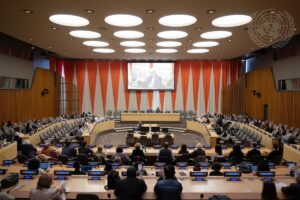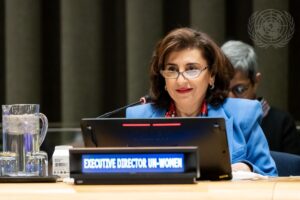The United Nations’ Summit of the Future in September offers a historic opportunity to adopt several far-reaching, high-impact global governance innovations. The summit’s success also hinges on a robust, closely monitored follow-up effort, championed by developing and developed countries alike, to support the goals and commitments adopted at the summit.
With only four months until the gathering, to be held at the UN headquarters from Sept. 22-23, the contours of its likely legacy — a more effective, networked and inclusive multilateral system — are taking shape. Through negotiations on the “zero draft” and subsequent “compilation draft” of the summit’s main instrument, the Pact for the Future, four major initiatives are emerging:
• A biennial summit on the global economy to bring the G20 and the UN closer to expand development financing for the 2030 Agenda (Sustainable Development Goals) and improve global economic governance.
• An emergency platform for better addressing complex global shocks, such as pandemics or large-scale environmental disasters (although influential countries, such as Pakistan and Cuba, question its purpose and cost).
• A Global Digital Compact with human rights-based principles to lay the foundations for broader governance of cybertech, including AI.
• A Declaration on Future Generations, which, if backed by an authoritative intergovernmental body, a special envoy and monitoring tool, could achieve the status and impact of the Universal Declaration of Human Rights.
In all four cases, much work remains to be done to overcome lingering mistrust, set up proper configurations (anchoring the biennial summit around the General Assembly’s annual high-level week rather than the Economic and Social Council), account for associated costs, create operational tools (akin to the Human Rights Council’s Universal Periodic Review), ensure implementation and monitor progress.
Read the full op-ed in PassBlue




